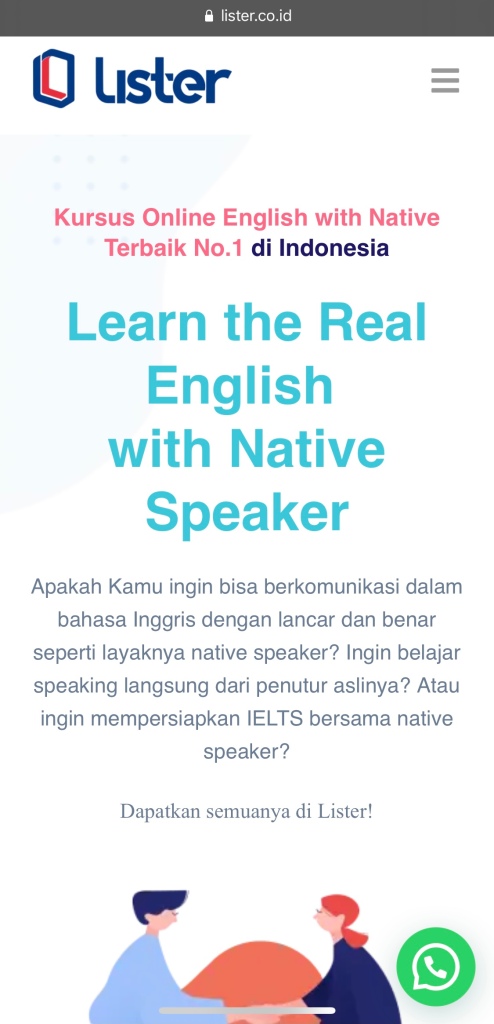Well, this sucks. I was hoping I would never have to write a second part of this blog post about job hunting in Indonesia, but here we are. Like the last time and even before it, I did not plan to be back in Indonesia at all, but the country I lived/worked in is on fire, and there is a serious shortage of basic human necessities such as food, electricity, fuel and also logic and kindness. It became increasingly dangerous one way or another each day, and I had to escape the situation.
So here I am, back in the situation of which I wrote about. I attended several interviews, some of them just to confirm my suspicion about the first blog post I wrote a while ago. There are a few things you need to know about the culture here and why they are (big) problems in many aspects of our lives — at least the lives of us who value our professionalism and have self-respect. Note that by no means these are uniquely Indonesian; I’m sure many countries live by the same values, but I am really writing this for us in the TEFL/TESOL/Education industries because this is my expertise and this blog is aimed at fellow TEFL/TESOL/Education professionals.
The first thing you need to know is that the Indonesian culture is extremely conformist. Allow me to share some very real everyday examples that you will hear almost every day if you interact with anyone here:
- An incompetent man explains something to a woman, who is an expert in that area. Because mansplaining like this happens every day, it’s ok to do it. Everyone does it anyway.
- People comment that you’re fat/skinny/fair-/dark-skinned. It’s body-shaming in nature, but people will just say it’s a conversation starter and it’s not harmful. Everyone is doing it, so it’s not a biggie.
- Look at that car — it jumped a red light. Well, everyone does it, so it’s ok for me to do it too, right?
- You are not even called for a job interview (even though you are well-qualified) because you don’t have a white name like “John Smith” or “Mary Parker”. The job is for white people (even if they are under-qualified). You are not white, so you don’t have any complaints that can possibly be valid. All employers do this, so this is normal.
- You are offered different salary package because of your nationality and skin colour. Everyone does that, so it’s ok to do the same, right?
(In case you didn’t get it, the italicised phrases above are my sarcastic remarks, and of course I think they are not OK).
You see, for most of the problems above, some really discriminatory remarks are very normalised here, because they have been done since World War 2, and everyone continues to do it “because it’s the way it has always been done“, and no one dare to challenge and say these are in fact racist and sexist remarks. The other day I met a dentist friend and she explained to me that during her practicum/placement, she needed to find patients for her to put in the hours. Not only she needed to find a patient; she had to pay the patient so they can get her service. On top of that, she needed to pay a middle-man to find patients for her. Am I the only one who thinks this is crazy? Yes, she was still a student-dentist, but she was putting 4 years’ worth of theoretical studies into practice, and she had to pay the patients and middle-men on top of her tuition fees. (She even had to hide the patients/middle-men part from her parents because her parents already paid for her tuition fees.) So she was really broke at that time — all this so that she can become a dentist and contribute to the nation’s public health. If you think there is nothing wrong with this, please unsubscribe from my blog and read Aristotle’s Virtue Ethics or Kant’s deontological ethics or something. But did she do anything about this? Could she do anything about this? Did the government do anything about this? This perfectly illustrates what I mean by the conformist culture: If it’s not normal, make it normal! Even if it’s ethically wrong.
Anyway, on to my job-seeking experience now.
One international school offered me a £380/month* salary after a brief 30-minute interview. As usual, the school claimed that it is a standard starting salary. I then asked whether they pay expat teachers any differently compared to a local. This is the moment the school principal started being defensive and it became obvious that she is lying. The principal explained that locals and expats are paid the same, and that I should be grateful with that salary because some teachers who have stayed with the school for 10 years get what I am offered. In my mind, I thought, “so why are you proud of it? This is horrible and inhumane.” And this is a common negotiation technique in Indonesia, which is honestly a really bad negotiation technique: “We can offer you £380/month. It’s not very high, but at least it’s not £250 (or insert other lower figures here).” / “It’s not much, but at least you have a job, you’re not unemployed and sleeping on the street.” They are very much relying on putting you on a victim’s mindset. Wait, are we still colonised in 2022? Did I miss the note? Seriously, are we? It feels like we are.
Another negotiation technique they used is that they are pressuring you to sign the contract ASAP: “We need you to start work tomorrow, so you need to make a decision tonight.” Another reason for me to believe that the principal is a (not very practiced) liar, is that I told her I can’t make a decision for at least a week, as I have other job interviews. She told me I was bluffing and she can guarantee that I won’t find an offer nearly as good as hers. I told her, whatever, I am still not signing up for that job tonight. And about a week later, she called directly to my mobile, asking whether I have thought about her offer. And she also raised the salary to £550/month, but no more negotiation after this, she said. I thought, “I did not even negotiate; you’re the one who called me and raised the offer.” Hypothetically, even if she raised the salary to £1,000, I doubt I will accept it. She lied about a number of things every single time we talk, and any self-respecting professionals in their right mind would not want to work with someone like that every single day.
One last notable negotiation techniques many employers use, which infuriates me, is that they are not able to see you for who you are now. It goes like this. They start by telling you how great their school is, and whether your experience and qualification can match their expectations. For that very reason, they can’t give you one of the higher pay bands — they will want to see you perform for 1 or 2 years, and then after that they will consider raising your salary. This one really makes me sick: Clearly they invited me for an interview because of my experience and qualifications, and then I come in for an interview, and then they start telling me about how unworthy I am. The sad part is, I understand where they came from: There are so many dodgy and unreliable individuals in our TEFL/TESOL/Education industry, and they want to be on the cautious side and not trust people right away.

After a little more investigation, I finally realised that nearly all organisations rely on hiring recent graduate with zero experience (therefore zero negotiating power) or foreigners who are really desperate to get a visa. And then they will pay these people as low as possible and overwork them in every way possible. So it makes sense that they are not able to negotiate with me in a logical way — they rarely deal with people with self-respect and critical thinking skills. With the above scenario, I would guess the first thing that came to mind to the school principal when she saw my CV is: “Look, here is someone with foreign teaching qualifications. And bonus — he’s an Indonesian, so we can pay him as low as possible!”
Again, conformist culture. Everyone does it, so why can’t I do it too? Does not matter if it is wrong or right, since everyone does it, it’s ok for me to do it too. Well, sorry to break the news, but if this is the way you think, then you are part of the problem, and you are the reason the world is a bad place, and the reason some of these countries never progress.
Stay woke, people. Know your worth and market value. Do not let anyone tell you that you are worthless. If you are reading this blog post until this point, I am sure you are a hard-working professional and seek for ways to improve the world.
*By the way, before you say “£380 is adequate because it’s Indonesia and not the US/UK/EU”, no it is not adequate. Just Google the cost of living in Jakarta and you will find out that it is barely enough for renting a single room.













You must be logged in to post a comment.